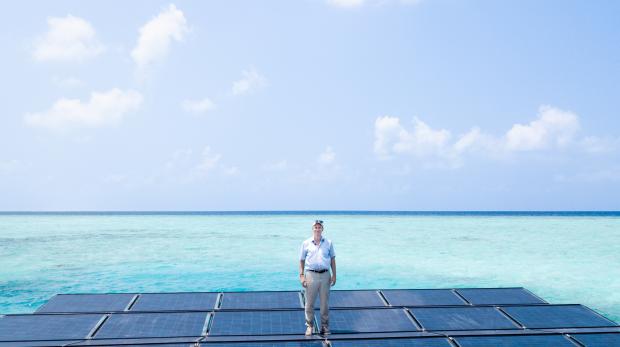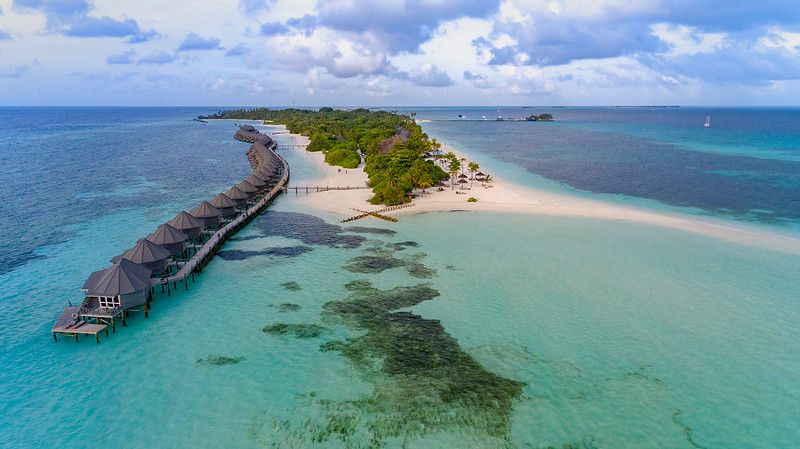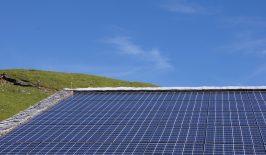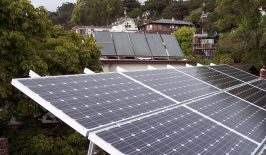Islands are special places – but their isolated nature often brings a set of very particular challenges. Not only are they remote, they’re also often economically and ecologically fragile, especially in regards to climate change and rising sea levels. Although the causes of climate change may be global in scale, progress on a local level – especially for island nations – can still have a major impact on the inhabitants and local flora and fauna. One of the most urgent ecological problems affecting tropical islands is the environmentally-damaging production of electricity.
Many tropical islands generate their electricity with large diesel generators, similar to those used in cars. A typical Maldivian island consumes 3,000 to 8,000 litres of diesel per day, which has to be imported to the island. Diesel powered electricity is not only the most expensive way of generating power, it’s the dirtiest and noisiest too. This is especially true when it comes to the huge numbers of hotels that are found on tropical islands, full of power hungry air conditioning systems.
 © Swimsol
© Swimsol Swimsol and the journey to SolarSea
Renewable energies would obviously have a lot of immediate benefits over diesel, but switching over is often not that simple. Islands in the tropics are blessed with plenty of sunshine, but good workable land is at a premium. In order to generate enough electricity to power even a small tropical island, several football pitches of solar panels would usually be necessary.
Swimsol, a company based in Vienna and working in the field of solar power for 20 years, presented a solution in 2014 – the world’s first floating solar panel. The special floating photovoltaic cell is the result of more than four years of development in cooperation with the Vienna University of Technology and the Fraunhofer-Gesellschaft in Germany. Swimsol has since become a specialist in photovoltaic systems designed for tropical islands, especially the Maldives, where the first commercial SolarSea system went into operation in 2014. Although the price of installing the floating solar platforms is considerable, they produce more environmentally-friendly and cheaper electricity than diesel generators in the long term.
Swimsol, whose clients are mostly luxury tourist resorts, carries out their projects in two phases. First, solar panels are installed on roofs on the island, in order to make the most of the space available. This is followed by the installation of floating systems, which are five to ten percent more efficient. A bit like boats, these floating systems are anchored in the seabed and supply electricity to the island via an underwater cable. SolarSea’s systems are built to last. The aluminium and steel structures expected to have a lifespan of around 30 years, with their open structure making them resistant to the mechanical stress caused by waves and wind.
Nine solar projects with a peak capacity of three megawatts have now been installed on Maldivian islands, and they are constantly being maintained by a team of local Swimsol engineers.
Are there any drawbacks?
During the night – when the sun’s not shining – the resorts usually go back to using diesel generators to produce energy. Storing the solar energy for later use would require huge batteries which are prohibitively expensive.
And could the floating solar cells have a negative impact on nearby marine life? Not according to SolarSea. Installers make sure that the panels are always placed over empty patches of the seabed and not over corals. There they could even have a positive effect on nearby sea life – serving, for example, as shelters for fish and other marine creatures.
It would be great to see luxury tourist resorts taking measures to reduce their electricity consumption in the future, and also collaborating with the public sector to deliver green electricity for all. Right now, Swimsol’s largest solar system is located off the island of Dharavandhoo, which is primarily inhabited by locals, and there are hopes for more local involvement in the future.
According to Miriam Eder of Swimsol, their next goal is to install more SolarSea cells at larger, more populous islands, avoiding the burning of even larger amounts of diesel. As she told RESET in interview: “Our vision is to build a large SolarSea system for the capital island of Malé – we could avoid the use of millions of litres of diesel a year.”
This is a translation by Mark Newton of an original article which first appeared on RESET’s German-language site.






